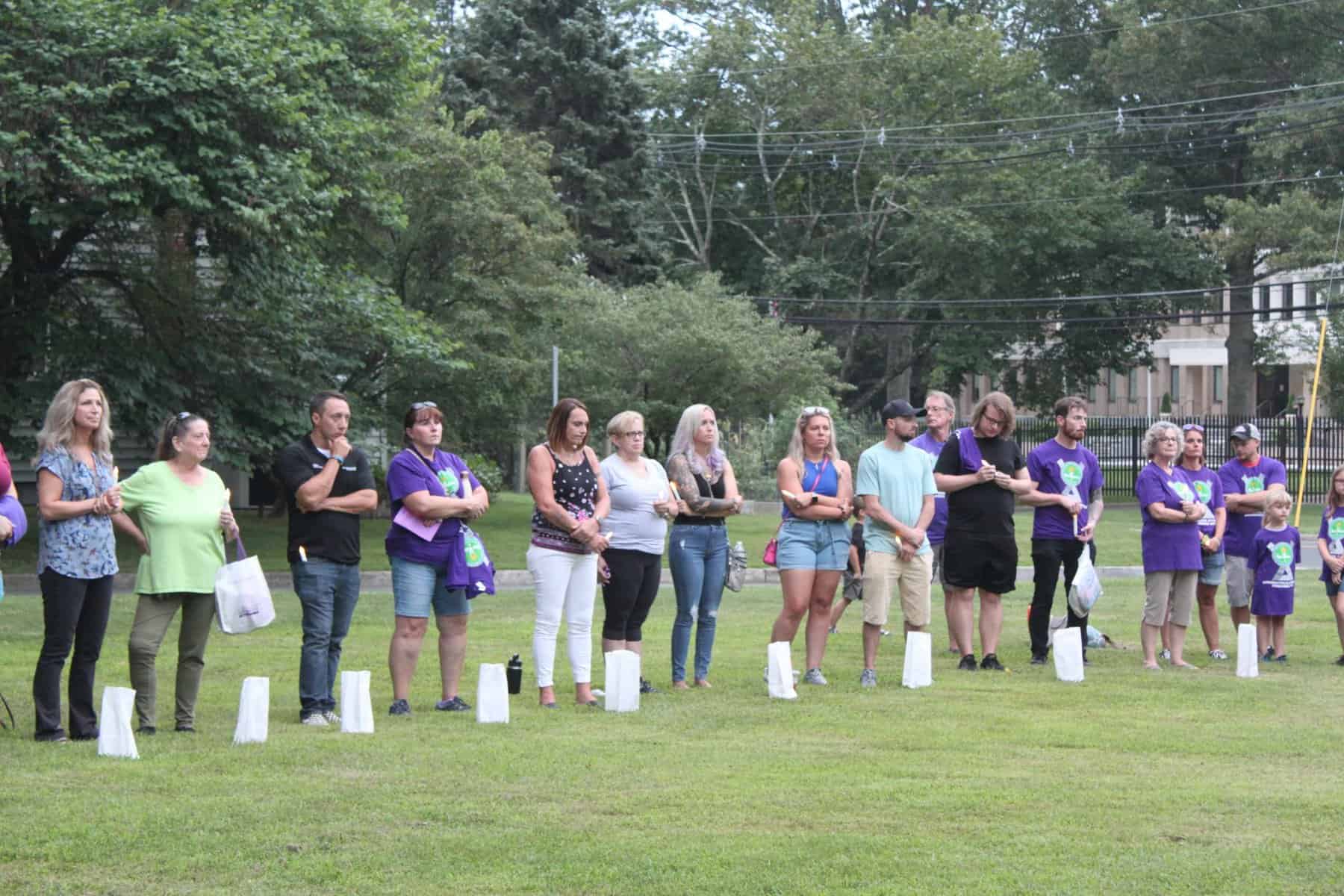Chris had struggled for 20 years with an opioid addiction. He suffered drug overdoses many times, but he had finally overcome his addiction.
Chris was on his way to making a new life, with the help of “some incredible people,” said his mother, Lynn, who declined to provide her last name. He found a great job, which gave him a chance to put his life back together with dignity.
But Chris felt the urge once more to take drugs – just one more time.
“The fentanyl poisoning killed him instantly,” Lynn said.
Chris’s story was one of many shared by recovering addicts and their families at an observance and candlelight vigil at the sixth annual International Overdose Awareness Day, held Aug. 31 at Central Park in Lawrence Township.
“We are here to remember those who fell to the disease (of substance abuse), and to give thanks to those who spread the word that it doesn’t have to happen. It doesn’t have to happen,” said Rev. Wil Kauffman, pastor of the Church of the Nazarene.
Those who spread the word – nonprofit agencies dedicated to helping substance abusers to overcome their addictions – had set up tables at Central Park with informational fliers and brochures.
The groups and agencies ranged from the Trenton-based City of Angels, which was started in response to its founder’s son’s drug overdose death, to High Focus Centers, A.F.A.R. (A Future After Rehabilitation), Relevance New Jersey, and Recovery Advocates of America, Inc.
While substance abusers are stigmatized and considered by many to be damaged goods, anyone can become addicted to drugs or alcohol – from Lynn’s son, Chris, to Mercer County Executive Brian Hughes.
“We are here to fight the stigma of opioid use,” Hughes told the attendees. He is the son of former New Jersey Gov. Richard J. Hughes, who was also chief justice of the New Jersey Supreme Court.
“We are here for the people that we lost, but more importantly for the people we have saved, so they know there is another way – an alternative – to the substance abuse they are going through now,” he said.
Hughes said he has been in recovery from drug and alcohol abuse for 32 years. Every day is a challenge for those who have been addicted to drugs or alcohol, he said.
Hughes credited his brother, Michael Murphy, for showing him that there are alternatives. He told the attendees that they “can be that vessel” for people who they know are fighting substance abuse issues.
“There is a better way. I would not be the husband that I am, I would not be the father that I am, I would not be a homeowner and I certainly wouldn’t be the Mercer County executive, unless someone had reached out to me,” Hughes said.
While some addicts have been able to kick their habit, there has been a spike in drug-related deaths, said Barbara Sprechman, assistant executive director of the Mercer Council on Alcoholism and Drug Addiction.
“We know the prevailing theme: it is driven by illegal fentanyl,” Sprechman said.
“It is just horrible. It comes from our open border (with Mexico). Deaths have gone up 400% in the last year or so. We all have to fight this scourge,” she said.
Mercer County Prosecutor Angelo Onofri concurred.
“To say 2020 was a difficult year is an understatement,” Onofri said.
There were 94,000 drug overdose deaths in the United States last year, and 60% of those deaths were fentanyl-related, he said. And without a doubt, the COVID-19 pandemic contributed to it, he said.
In Mercer County, there were 161 drug overdose deaths between Jan. 1, 2020, and April 30, 2021, he said. First responders administered Narcan to nearly 700 people to reverse drug overdoses.
“We need to talk about addiction as a disease. There are people who care and people who want to help. Thank you for doing God’s work,” Onofri said.

